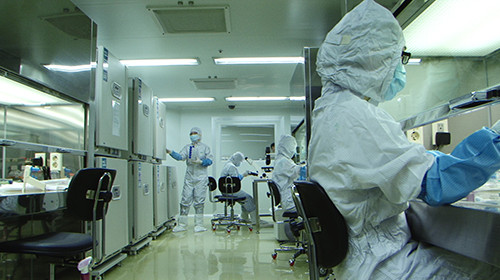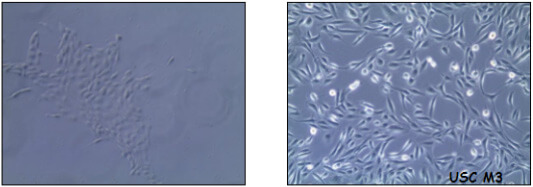
Dr. Ra Jeong-chan’s research team at Biostar, successfully develops the USC separation and culture technology
- Presenting the possibility of preventing the risks associated with kidney transplantation for chronic renal insufficiency through a renewal of renal function
The Biostar Stem Cell Research Institute, jointly run by Nature Cell and R Bio, announced on September 18 that it has successfully developed the method of separating and culturing stem cells from urine, using independently developed technology.
Every tissue of the human body contains adult stem cells that can differentiate into various types of cells. There are upsides to using stem cells in urine, in particular: they can be collected repeatedly without causing pain or discomfort to the patient concerned, and can differentiate into urogenital system cells.
Dr. Ra Jeong-chan’s research team at Biostar separated stem cells from the urine samples collected from volunteers aged between 30 and 65 and confirmed their stem cell functions. They also developed the method of culturing urine-derived stem cells (USCs) using their independently developed technology.
Dr. Ra Jeong-chan’s research team is currently conducting research to use USCs in the treatment of urogenital diseases including kidney disease, urinary incontinence, and erectile dysfunction. They are also planning to focus on the treatment of kidney disease, and attempt a renewal of kidney function in chronic kidney disease (CKD) patients, who must endure the difficulties associated with hemodialysis and may require kidney transplantation.
There are about 26 million people around the world who are suffering from renal insufficiency, and the number of such patients has been growing over the years. In the case of Korea, there are some 40,000 patients receiving kidney dialysis treatments for CKD, with about 5,000 patients beginning kidney dialysis treatments every year.
Dr. Ra Jeong-chan, the President of the Biostar Stem Cell Research Institute, said, “The incidence of chronic kidney disease has been increasing dramatically around the globe. By seeking and applying a fundamental treatment method in USCs, we hope to prove that a therapeutic agent for intractable diseases is already present in our own bodies.”
Dr. Ra’s research team plans to initiate a clinical trial on animal models of CKD as early as October by combining the use of adipose-derived stem cells, endothelial progenitor cells (EPCs) and USCs.








Leave a reply